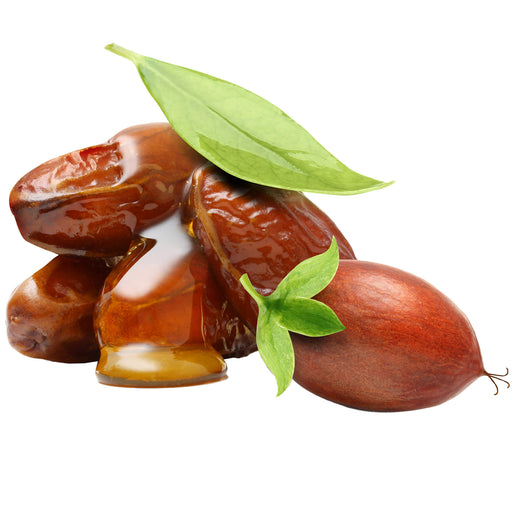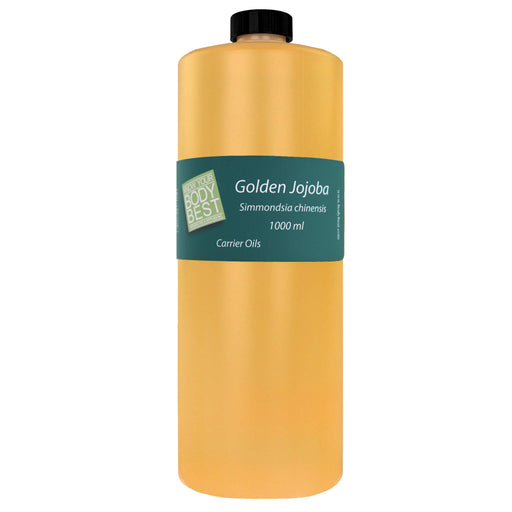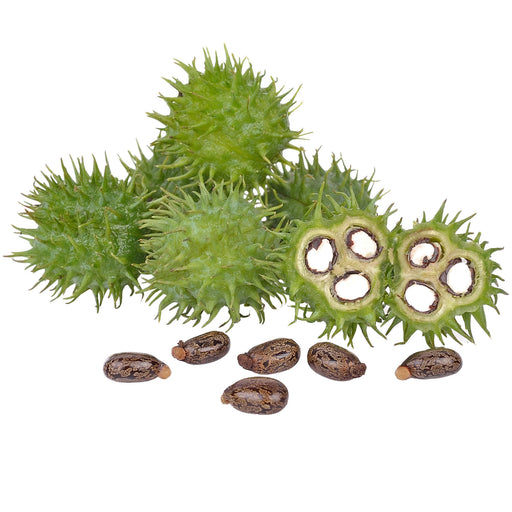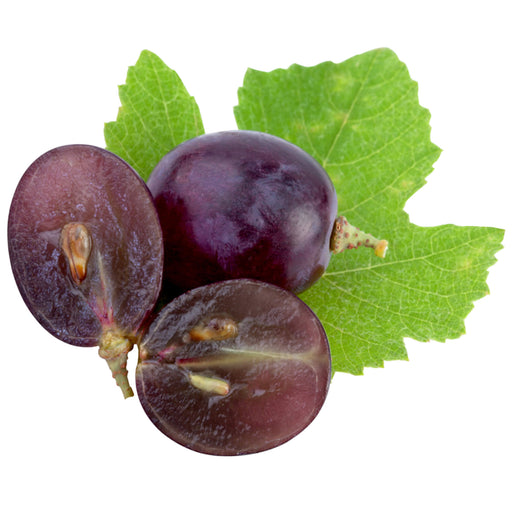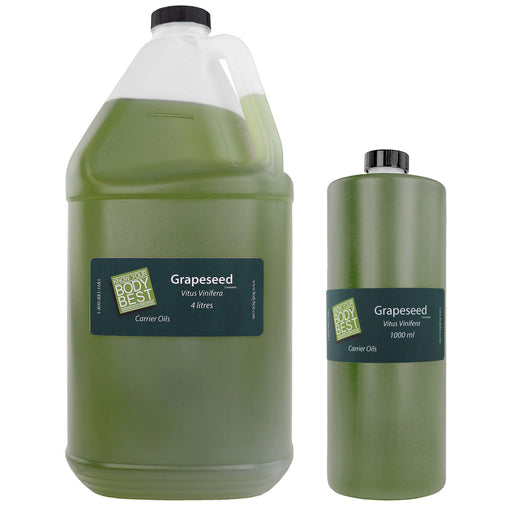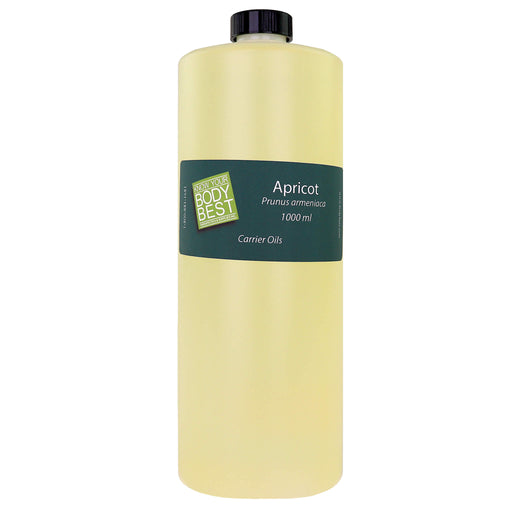over $250.00

Using Essential Oils: 20 Aromatherapy oils explained
Many aromatherapy clients ask how to use Essential Oils. Below is a quick guide for you and your clients seeking answers about essential oils and how they can be used.
Please remember essential oils should always be used under the direction of a professional trained in the proper and safe use of essential oils.
How to use Essential Oils:
Arnica

Arnica is a 100% natural, anti-inflammatory herbal extract that targets and alleviates muscular pain. The use of Arnica can reduce bruising, muscle tenderness, and spasms. Arnica is often used to ease conditions such as tendonitis, carpal tunnel, bruising, muscle strains and sprains. Learn more about the beneficial properties of Arnica here.
Argan Nut
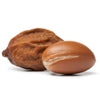
Argan Moroccan Nut oil contains high levels of vitamin E, and therefore, helps reduce free radical damage, wrinkles and helps to restore the skin’s lipid layer. Argan oil can help protect against premature aging that is caused by oxidation. It is a natural anti-inflammatory (internally and externally) which means it can beneficial for arthritic or rheumatic conditions. Use Argan Nut oil to reduce stretch marks during pregnancy.
Basil

During the 16th century, basil was used to treat headaches, migraines and head colds. Basil has been used to treat muscle spams. Basil has been long used to treat chest infection, digestive problems and jaundice. Massaging over the stomach, basil can help ease digestive difficulties. Some have also considered basil as an aphrodisiac.
Basil oil blends well with other oils, especially lavender and is very good for tired, overworked muscles. The yellowish colour of basil oil is caused by its active principles which include methylchavicol, linalol, cineol, eugenol, pinene and camphor.
Bergamot
The oil from the Bergamot tree is extracted by putting pressure on the rind of the fruit. The Bergamot fruit resembles a miniature orange. Bergamot oil is often used to treat urinary tract infections, depression and anxiety among many other ailments. Bergamot has been described by aroma therapists as uplifting and relaxing. It is very effective in massage oils because it help lift the spirits of the receiver and helps calm mental states.
Caution must be taken when using Bergamot because it increases the skin’s reaction to sunlight and can lead to sun burns through increased photo-sensitivity.
Boswellia
This oil is extracted from the Boswellia tree, but the oil is better known as Frankincense. In Africa, the bark of the Boswellia tree is used to treat fever, rheumatism and gastrointestinal problems. Boswellia is helpful on older skin because it helps reduce wrinkles and restores some tone. Boswellia has a calming effect on the emotions and is valuable in treating respiratory infections. It is therefore useful in inhalation, massage and baths.
Calendula
Calendula oil is an anti-inflammatory and antibacterial oil. It can be added to healing ointment for cuts, burns, bruises, warts, aches and pains. Traditionally, Calendula oil has been used for abdominal cramps and constipation, however it also has many cosmetic uses. Calendula oil can be added to body wash to prevent acne, or applied to hair to add shine. Caution: Do not use Calendula oil during pregnancy.
Cedarwood
Cedarwood is a powerful antiseptic commonly used for bronchial and urinary tract infections. It is also used in skincare as a mild astringent. The antiseptic properties of Cedarwood make it a valuable acne treatment. Caution: Do not use Cedarwood during pregnancy.
Chamomile Roman
Chamomile is soothing and calming. Chamomile is ideal for dull aches and pains because it is an anti-inflammatory and an analgesics. It is commonly used in massage to address muscular pain and inflamed joints for patients with arthritis. Roman Chamomile is useful in treating sprains, inflamed tendons, and bursitis. Use Chamomile on sensitive, red or dry skin. Chamomile is a gentle oil and is excellent when treating children. Chamomile has anti-depressant properties that assist in dealing with stress and anxiety.
Cinnamon Leaf Oil
The spicy Cinnamon Leaf oil has great value in aromatherapy because it fights exhaustion and feelings of depression and weakness. Cinnamon Leaf oil has powerful anti-rheumatic properties such as antiviral, antifungal, antibacterial and anti-inflammatory properties. It is useful in the digestive system and for fighting colds and flu as well.
Clary Sage
Clary Sage is a valuable treatment in aromatherapy for asthma. It has been found to relax the bronchial tubes and helps with the anxiety and emotional tension often found in asthma sufferers. The warming and antispasmodic properties help with digestive problems such as cramps or colicky pains. Gently massage Clary Sage on the stomach and abdomen for comfort and discomfort relief. Clary Sage is also traditionally used as an aphrodisiac. Caution: Do not use Clary Sage during pregnancy.
Citronella
This essential oil is often thought as just an insect repellent (especially for mosquitoes carrying malaria). But what you might not know is that Citronella can help clear the mind and refresh rooms. The essential oil can soften skin while combating oily skin and sweaty feet. Citronella oil has a slightly sweet, lemony smell. Citronella oil is an antiseptic, bactericidal, deodorant, diaphoretic, insecticide, tonic and stimulant. Citronella oil may irritate sensitive skin and cause dermatitis in certain individuals.
Eucalyptus
Use eucalyptus oil in massage to relieve rheumatism, muscular aches and fibrosis pain. Eucalyptus oil is used in aromatherapy to help clear the mind and focus concentration. It also reduces swelling in the mucus membranes. Eucalyptus oil helps fight respiratory problems, inflammation, sore muscles, rheumatism, headaches and nervous exhaustion. It helps to sooth and heal ulcers, wounds and skin eruptions.
Ginger
Ginger is a warming essential oils that is often used to aid digestive problems and nausea. It can be used for morning sickness and travel sickness. Ginger is valuable for treating the cold and flu, as well as catarrhal lung conditions and rheumatic pains. Ginger can also be applied on the skin to help clear bruises.
Geranium
Geranium is useful for treating injuries. It is a valuable astringent and haemostatic (helps clot blood at wound sites). Geranium oil promotes healing and is used in a variety of commercial skin preparations. When used in massage creams, it can help stimulate the lymphatic system to treat cellulitis, fluid retention and swelling in the ankles.
Golden Jojoba
Golden jojoba oil moisturizes dry, flaky skin and hair. It helps reduce wrinkles and treats psoriasis, acne and neurodermatitis. Golden joboba treats dry, itchy scalps and dandruff. Massage a couple of drops of oil on to the scalp. Wrap your head in a hot towel for 10 minutes, then shampoo and condition your hair. Golden jojoba oil is a good body lubricant and massage oil. It can also help heal minor cuts, bruises and burns.
Grapefruit
Grapefruit oil is not a photosensitizer like other citrus oils. It does not contain some of the furocoumarins that have this effect. This means it is considered low risk of damaging skin if exposed to the sun.
Grapefruit oil is useful in lymphatic massage. It is a valuable oil to treat fluid retention, cellulite and other conditions where toxins are not being effectively eliminated.
Jasmine Absolute
Jasmine is considered the King of Oils, due to the oils masculine scent extracted from the delicate jasmine flower. Jasmine can help treat enlarged prostates and is considered to help strengthen the male sexual organs. Jasmine’s impact on the emotional and physical levels helps alleviate anxiety, tension, depression and fear. It has a gentle, deep penetrating effect on the skin, making it an excellent massage oil.
Juniperberry
Juniper has been considered for many years to be an effective diuretic and antiseptic which are very important in aromatherapy. It has been used for thousands of years to protect against infections. It should be considered for eliminating toxins.
Lavender
Lavender is the most versatile of all essential oils. It has a wide range of beneficial properties. Lavender is an analgesic, antiseptic, bactericidal, antidepressant and decongestant. It is calming, soothing and has the ability to bring balance to the mind or body. Lavender can help relieve muscular pains when used in massage oils. It is best used in a massage oil blended with another essential oil such as marjoram or rosemary.
Lavender is excellent for relieving local pain, reducing inflammation and toning the system. This oil is very versatile and valuable for therapeutic applications because it helps to balance and normalize the body.
Lemon
Lemon oil helps to stimulate the body’s defenses to fight off infection. It is able to increase the body’s defenses to fight disease by stimulating white blood cells and increasing circulation.
Lemon oil is also very effective against stress, insomnia and stomach issues. It is also a natural disinfectant and a great alternative to chemical cleaners.
Lemongrass
Lemongrass should always be diluted in a carrier oil before use because it could cause damage to the skin. When diluted, lemongrass has a soothing effect on headaches. It is also known to help toothaches and headaches caused by viral infections. Lemongrass is most often used to treat general body pain such as muscle and joint pain resulting from strenuous activities and athletics. The uplifting aroma promotes relaxation and elevates mood. Consuming lemongrass will assist with digestive issues.
Lime
Lime oil is beneficial for the immune system. It helps aid respiratory infections and helps to relieve muscle and joint pain. Lime oil offers to revitalize tired minds. Additionally, lime oil helps to banish feelings of apathy, anxiety, and depression. When used in vapour therapy, it can help lift depression and energize a tired mind, while ease breathing and assist digestion. Lime oil can be used as a massage oil or diluted in the bath to help with painful muscles and joints, respiratory problems and cellulite, as well as to combat colds and flu.
Mandarin
Mandarin oil is used for digestive issues because it has a calming effect on the intestines. It is one of the oils that can be safely used during pregnancy as it will not harm the mother or fetus. It is excellent in massage for the prevention of stretch marks.
Marjoram
Marjoram has a warming effect on both the body and mind, but it can dull the senses and cause drowsiness. It is a good remedy for insomnia, and one should be aware of its sedative properties. Marjoram is very useful in massage as it acts upon the capillaries below the skin. It helps soothe tired muscles after heavy, physical exertions. Marjoram is also very useful in relieving pain, cramps, headaches, migraines, and stiffness. It can also be applied to the soles of children’s feet to encourage restful napping.
Melissa
Melissa oil helps to soothe the body and mind. It can be used to treat skin or respiratory allergies. When inhaled, Melissa helps relieve asthma and coughs. It offers calming properties that can help lower blood pressure. Additionally, the uplifting properties can help people in shock or distress.
Myrrh
Myrrh has been valued for thousands of years for its anti-inflammatory, anti-fungal, and antiseptic healing properties. Use Myrrh on slow-healing wounds. Add Myrrh to your skin care routine – it helps cleans and moisturize skin. Myrrh can be used as a massage oil. Caution: Do not use Myrrh during pregnancy.
Neroli
Dilute Neroli in massage oil, bath oil or skin cream. Neroli helps to stimulate the growth of new cells. It has a beautiful scent and is preferred in aromatherapy.
Neroli is an excellent essential oil to help treat anxiety. It is an antidepressant, antiseptic, aphrodisiac and acts as a gentle sedative as well. Since Neroli has the ability to relieve smooth muscle spasms, it is able to help individuals suffering from diarrhea due to anxiety. Neroli is also effective in treating depression in older, post-menopausal women.
Orange
Orange oil blends well with spice oils such as cinnamon, nutmeg, and clove. This oil helps battle insomnia, but it is recommended to switch oils regularly to more effectively treat insomnia. Do not use more than 4 drops within a bath because it may cause skin irritation. We recommend using orange oil within a bath during the winter. Preliminary research suggests that d-limonene (found in orange peel and oil) can inhibit the growth of cancer cells.
Oregano
This oil has a variety of therapeutic properties, however, has too many hazards to be recommended as a general aromatherapy oil. To be avoided during pregnancy, it can cause skin irritations and therefore should not be used in massage. For these reasons, this oil is not available at Know Your Body Best.
Patchouli
Patchouli has valuable uses for the treatment of skin disorders as it is anti-inflammatory and antiseptic in effect. It helps re-generate cells with fungicidal properties. Excellent for treating acne, tinea infections, and some skin allergies. It is also helpful for all forms of depression, anxiety, and stress-related conditions.
Peppermint
This oil stimulates the brain and causes wakefulness, not necessarily the properties needed before bedtime. Using it well diluted in massaging the stomach and abdomen in a clockwise motion can help relieve digestive upsets with its antispasmodic action on the smooth muscles. When used in steamers, it can cleanse and decongests the skin. Cold compresses of Peppermint applied to the forehead and temples relieve headaches. Peppermint should not be used if any homeopathic remedies are being taken and must be stored away from them as it affects these medications.
Rose Absolute
Considered one of the first essential oils distilled in ancient Persia and is also considered the Queen of Flowers in aromatherapy. It is used for the treatment of any female disorders or their reproductive system. Rose oil has a positive effect on the uterus as it is cleansing, purifying and regulating. Most important is its effect on an emotional level as it is a gentle, but strong anti-depressant. It has been long associated as an aphrodisiac as well as being very good in skincare. Rose oil may be used on all skin types, especially dry, sensitive and aging skin. Due to its astringent effects on the skin and circulation, it helps lower the redness caused by enlarged capillaries in the face.
Rosemary
Rosemary essential oil is used extensively in aromatherapy due to its versatility as a welcome aroma in so many popular combinations. The oil blends well with frankincense, lavender, clary sage, cedarwood, basil, thyme, citronella, lemongrass, elemi, geranium, chamomile, peppermint and cardamom. This is an excellent oil for tired, stiff and overworked muscles. A good analgesic, it is effectively used before training or competitive events. Rosemary oil should never be ingested and should not be used by pregnant, breastfeeding or nursing women, nor people with epilepsy.
Rosewood
Rosewood is a very safe oil that is non-toxic, non-irritant and non-sensitizing and is an excellent immune system stimulant. It has mild analgesic properties and a steadying, calming effect on the nerves. Among its useful properties is its antiseptic and antibacterial effect on sensitive, acne-prone skin. An excellent cell re-generator, it is good for older skin to diminish wrinkles, sun damage, and even stretch marks.
Sandalwood
Sandalwood is a very good pulmonary antiseptic and is good for dry, persistent and irritating coughs. It is one of the best essential oils for the treatment of chronic bronchitis and can be used for soothing sore throats. Sandalwood can be used for dry and dehydrated skins in warm compresses, but it also effective on oily skin with its antiseptic and slightly astringent properties. It has held a longstanding reputation as an aphrodisiac and is used in many cosmetic preparations.
St. John’s Wort Oil
St. John’s wort oil may be applied to the skin to treat a number of issues from scrapes to bruises. St. John’s Wort Oil is also antiseptic, antiviral and astringent, making it effective for treating wounds. Other uses include pain relief from muscles that ache or are tired from exertion. St. John’s Wort oil also has sedating affects. However, applying St. John’s wort directly to the skin is risky as it can cause serious sensitivity to sunlight.
Tea Tree (Ti-Tree) Oil
Tea tree oil offers antibacterial, antiviral and antifungal properties and is a very powerful immune-stimulant. It is usually not a skin irritant but there are cases where people have become sensitive.
There is a myriad of uses for tea-tree oil. Inhalations are good for catarrh and sinusitis using burners and vaporizers. Some creams incorporate Tea-tree oil for rashes. Tea tree oil has been used in baths and massages prior to surgery and massages afterward to lower post-op shock. (using the oil post-op with massage means avoiding the operative site or scar) It has been used to treat fungal infections like athlete’s foot, ringworm, and Candida.
Thyme Red
Thyme is an excellent pulmonary disinfectant as it treats, colds, coughs, and sore throats. It may be used as an inhalant for nose, throat and chest infections.
Very effective for fatigued people, it stimulates the production of white corpuscles to strengthen the body defenses against invading organisms. Thyme helps revive the body and mind.
Vetiver
Vetiver oil has many uses in skin care, especially for oily skin and acne. This is an immune-stimulant, helping us cope with stress. Vetiver is valuable in massage as it is very relaxing. It can be used in baths to help those suffering from stress, anxiety, insomnia or depression.
Ylang Ylang
The most important physical property of Ylang-Ylang is its ability to slow down over rapid breathing and heartbeats (tachycardia). These symptoms may appear when someone is overstimulated due to fright, or anger and Ylang-Ylang can be helpful under these conditions, however medical advice should be sought if this continues in the long term. Due to its balancing action, it is useful on both oily and dry skins. Ylang-Ylang is an effective anti-depressant, aphrodisiac and sedative as it has a calming and relaxing effect. Prolonged use in high concentration can lead to nausea and headaches.
Cautions
Essential oils should not be taken orally and or ingested without the supervision of a professional. Inhalation therapy should only be considered when under the direction of a trained aromatherapist. Only use essential oils after understanding their properties, proper dilution techniques, and possible contraindications.
Featured collection
-
Original price $14.99 - Original price $124.99$14.99 - $124.99$14.99
Lowest Price per ml: $36.66
$9.99 - $109.99$9.99 - $109.99Current priceCurrent Price: $29.99
Price Per ml: $29.99
$9.99BodyBest Fractionated Coconut Massage Oil
BodyBestIn stockBenefits of BodyBest Fractionated Coconut Massage Oil Elevate your massage experience with our house-branded Fractionated Coconut Massage Oil, a pr...
View full detailsOriginal price $14.99 - Original price $124.99$14.99 - $124.99$14.99Lowest Price per ml: $36.66
$9.99 - $109.99$9.99 - $109.99Current priceCurrent Price: $29.99
Price Per ml: $29.99
$9.99Save up to 12% -
$14.99 - $59.99
Lowest Price per ml: $0.06
$14.99 - $59.99$14.99 - $59.99Current priceCurrent Price: $59.99
Price Per ml: $0.05
$14.99Golden Jojoba Carrier Oil – Professional Massage & Skin Therapy
BodyBestIn stockGolden Jojoba Carrier Oil – Professional Massage & Skin Therapy Golden Jojoba Oil is a premium, professional-grade carrier oil designed for cli...
View full details$14.99 - $59.99Lowest Price per ml: $0.06
$14.99 - $59.99$14.99 - $59.99Current priceCurrent Price: $59.99
Price Per ml: $0.05
$14.99 -
$0.00 - $0.00$0.00
Lowest Price per ml: $0.03
$11.99 - $29.99$11.99 - $29.99Current priceCurrent Price: $11.99
Price Per ml: $0.04
$11.99Castor Organic Carrier Oil - Extra Virgin
BodyBestIn stockProfessional Castor Organic Carrier Oil – Extra Virgin for Therapeutic & Wellness Use Extra Virgin Castor Oil is a high-viscosity, professional...
View full details$0.00 - $0.00$0.00Lowest Price per ml: $0.03
$11.99 - $29.99$11.99 - $29.99Current priceCurrent Price: $11.99
Price Per ml: $0.04
$11.99 -
$29.99 - $99.99
Lowest Price per ml: $0.02
$29.99 - $99.99$29.99 - $99.99Current priceCurrent Price: $29.99
Price Per ml: $0.02
$29.99Refined Grapeseed Carrier Oil – Cosmetic Grade
BodyBestIn stockOur Refined Grapeseed Carrier Oil – Cosmetic Grade is a lightweight, professional-grade carrier oil widely used by massage therapists, aesthetician...
View full details$29.99 - $99.99Lowest Price per ml: $0.02
$29.99 - $99.99$29.99 - $99.99Current priceCurrent Price: $29.99
Price Per ml: $0.02
$29.99 -
$29.99 - $29.99$29.99$29.99 - $29.99Current price$29.99
Apricot Kernel Carrier Oil - Cosmetic Grade, Refined
BodyBestIn stockProfessional Cold-Pressed Apricot Kernel Oil for Massage & Body Treatments Cold-Pressed Apricot Kernel Oil – Cosmetic Gradef, Refined is a ligh...
View full details$29.99 - $29.99$29.99$29.99 - $29.99Current price$29.99


